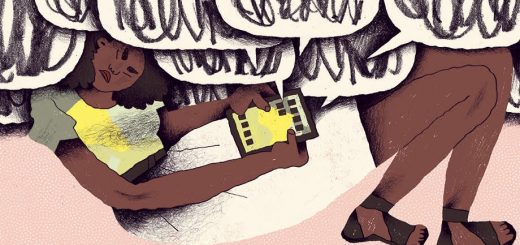The Challenges of Working (and Living) with Sexual and Gender-Based Violence
by Natasha Leite · Published · Updated
Article published first at Women Deliver Blog.
You could be in Brazil, the United States, the Maldives, Thailand, France, Jordan, or, in my case right now, Kenya and talk to someone about their experiences on sexual and gender-based violence (SGBV). Chances are, most girls and women will have a story – from being objectified and harassed in the street, to being raped or forced to marry as a child.
Working with gender and violence is not an objective work because there isn’t a separation; those conversations about SGBV are experiences we share as women and girls. In both my personal and work experience, the biggest difference between countries from the Global South with the reality of the Global North is not that violence necessary occurs less, but that victims and survivors have more supporting services on which they can rely.
I make the distinction between survivors and victims because some people are never really given the opportunity to overcome the violence they have suffered. They could be re-victimized by the very same actors that are supposed to be helping them and shunned by families and communities. Overall, between 34% and 59% of women who were physically assaulted by their partners reported that no one had tried to help them.
When I was working in Belize coordinating a project on prevention of violence against women and human trafficking, there were no public shelters for women who had experienced sexual or gender-based violence. This means that if someone was a victim of domestic violence, they would have to rely on their own funds or find a community-based initiative. The Belize government has one specific department within the Ministry of Human Development for gender-related issues, which is the Women’s Department. The Women’s Department has eight social workers trying to cover the entire country’s sexual and gender-based violence cases and it has very limited human and financial resources. This experience is not unique; in many places that I have worked, women and girls would be glad to have what Belize has because too many don’t even have one assigned social worker for their district.

There is the added fact that violence and patriarchy are so pervasive that people don’t realize when they are replicating it. Talking with a police commissioner about changes in the domestic violence legislation, giving it a harsher sentence to perpetrators, I received the following reply: “Yes, it is challenging. For us even more so now that we have to put those guys alongside dangerous criminals like murderers and robbers.” I couldn’t believe my ears — a crime against property was considered “more dangerous” than a crime against another human being.
But the reality is, they can change, but not until we make that change mandatory Impunity is a major driving force for why sexual and gender-based violence is a worldwide epidemic. 119 countries already have laws on domestic violence; 125 have laws on sexual harassment; 52 have laws on marital rape. This proves that as a society we know, at least conceptually, that SGBV is wrong. We now need law enforcement and justice to give due attention to those cases. We need institutions to address sexual violence and harassment in the workplace. We need people to stand up for each other when someone is being harassed in a public space.
Most importantly, we need countries to make psycho-social support and attention to victims a priority. Government domestic violence units are sorely underfunded, often lacking training, social workers, or even private rooms. It is not a matter of lack of resources, because combating drug trafficking or border control programs usually have funding throughout the year. It’s a matter of prioritization.
We can eradicate sexual and gender-based violence within our lifetime; we just have to dedicate enough resources and act together. It is not too much to hope. In the end, we just want to live a world where violence is not such an integral part of our lives as women.




